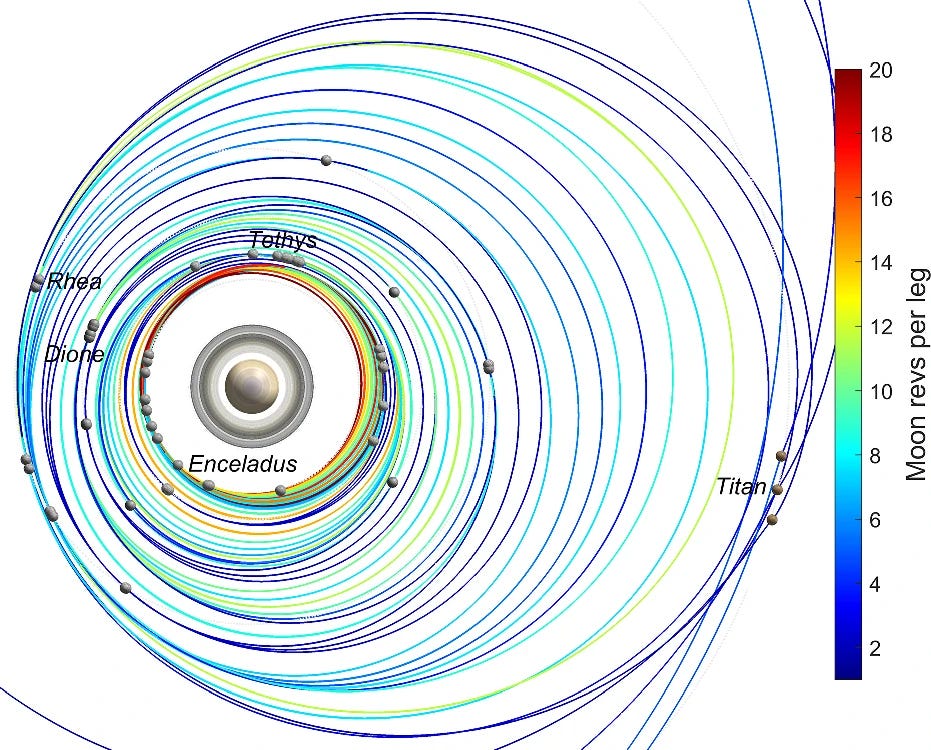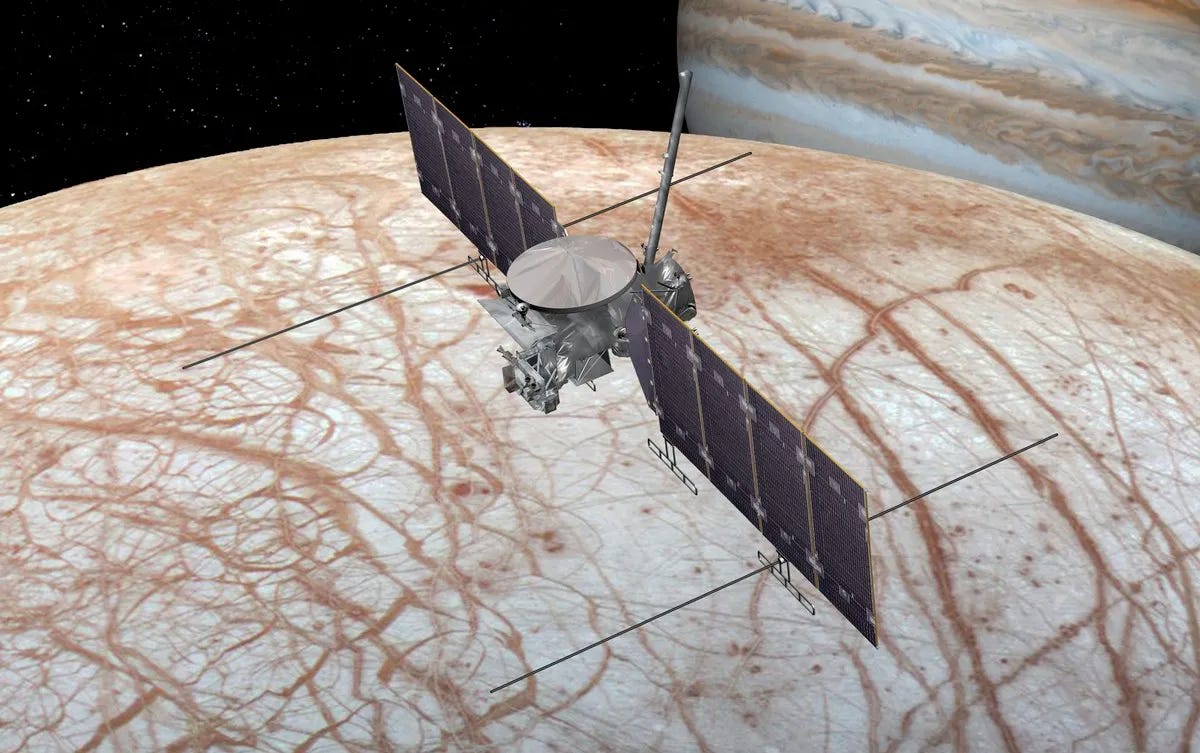How To Work at NASA JPL as an International Student?
... or how Yuji made his dreams of space come true! 🚀🪐
Hi Overview-ers, this is Yuji! While authoring an article on How to survive the aerospace industry in the US as a FN, my friends Isaac and Anshuk found my article (in Japanese) on how I got internships at NASA JPL as an international student. This story is a translation of that article with some additional tips and advice.
I never (ever) expected to work at NASA JPL (twice) during my undergraduate years. When I passed through customs in the Atlanta airport for the first time, 19-yo-me was dreaming “It would be great if I had a chance to do a post-doc at JPL in 10 years”. It turned out I overestimated this timeline by more than triple.
Back in Georgia Tech (where I did my undergrad), it was always painful seeing my international Aerospace friends switching out their majors, or giving up on their dreams of joining a top Aerospace department in the US. So I’m hoping this article helps my fellow international-space-folks dare mighty things!
Quick self-introduction
I am originally from Tokyo, Japan (FN, no green card). After spending a few months at the University of Tokyo, I started my life in the US at Georgia Tech in 2019. Since last fall, I have been a Ph.D. student at Stanford Aero/Astro. My main research interest is in GNC, astrodynamics, and space logistics.
In the summers of 2022 and 2023, I had the fortune to do two internships at NASA JPL (312A (Project Systems Engineering and Formulation) and 392M (Mission Design and Navigation)). The former was remote and unpaid, and the latter was on-site and paid, and I’m going to discuss how I these opportunities came about…
Knocking on The Door
I will pass the whole explanation of ITAR/EAR, the hurdles of getting an aerospace job in the US, etc. to Isaac’s excellent article.
The fortunate thing about my situation was that I knew what I was getting into before coming to the US (I had heard about so many unfortunate cases where international students came to the US without an informed plan). So my Plan A was (still is) to get a Ph.D. and apply for a green card (GC) in the US. I fully expected this to be a 10-year project.
To achieve this plan, I went straight into the research track from my freshman year. I still remember the experience of reading an academic journal; I wrote down each line of every equation again and again, not understanding it at all, and taking more than three months to (semi-)comprehend what was going (so if any of you undergrads feel what you’re doing in research is difficult, you’re on the right track. I still feel that my Ph.D. research is unfathomably difficult).
Side story: when I was applying to undergraduate schools in 2018, MIT was my first pick as I was (still am) heavily inspired by space logistics (papers around 2010 from Prof. Olivier de Weck’s group). I was scrolling the alumni list and found a young Japanese alumnus was teaching at UIUC (which I also applied to), so I sent an email to him and had several interactions. Half a year later, as I (was rejected by MIT and) committed to GT, it turned out that that professor (miraculously) moved from UIUC to GT at the same as I matriculated, and I ended up starting space logistics research from the first semester at GT. The luckiest moment of my undergraduate experience actually happened before Day 1.
A year later (fall semester of sophomore year), I published my first conference paper, which turned into a journal paper at the end of the second year. This lent me enough confidence to go up to my professor at the beginning of the third year and directly ask: “I am interested in an internship at JPL. Any chance you can refer me to somebody?” (I had been implying my interest to JPL to him, but that was the first time I asked him). He kindly sent a (long) email to his two friends, one of whom replied to me, saying, “ok, let’s have a 30-minute chat!”.
And things went really quickly from there. (In hindsight, that was an unofficial interview, but) I basically talked about my research, and after one or two more meetings with him, he offered me an internship under his group. As he is a roboticist and I had a strong penchant for astrodynamics, I asked him if he could refer me (again) to a space mission designer/astrodynamicist at JPL, which he kindly did for me; and this is how I met my boss for the summer 2022 internship. Referral, referral, and no interview (when I first chatted with my boss, he casually asked me, “So when do you want to start your internship?” and that was my dream’s-come-true moment).
Side story: In the referral email that the JPLer sent to my boss, he wrote, “I spoke with Yuji, who is very good in math and in particular optimization and astrodynamics.” I felt, “OK, I’m going to have to work very hard this summer.”
My 2022 Summer Internship
Although I managed to get an internship, it was remote (primarily due to COVID) and unpaid (I had an external fellowship from Japan, so could apply to a program called the JVSRP). But it was a lot of fun! I worked on the mission concept development for the Enceladus mission, primarily working on the trajectory design optimization in the Saturnian system (called the “moon tour design”, because a spacecraft makes dozens of flybys to multiple moons).
Albeit being remote, it was great to have access to an email directory of the entire JPL community. I constantly requested and held (remote) 15-30-minute chats with Japanese/FN JPLers, other astrodynamicists, etc. to get to know the community, their life lessons, and how to prepare for a long career as a space person. (regardless of where you work, this is highly recommended.)
At the end of the 2022 internship, I had delivered enough to publish a paper (writing a paper with JPL, wow…). And this led to another opportunity for the next summer…
A Second Chance
So, in January 2023, I went to a conference held in Austin and presented a paper (now a journal paper!). My paper’s crux was automatically finding a broader set of optimal Saturnian tour designs, compared to two point solutions that were (semi-manually) found 15 years ago; and the person who made one of them (currently a mission designer at JPL) was presenting about Europa Clipper right before me (Jovian and Saturnian moon tour, of course, we’re assigned in a same session…) in the same session. He liked my work and I got several nice suggestions as well… And this is how I found my boss for my second internship at JPL.

Side story: Originally, I was not thinking of returning to JPL and was instead looking for an internship in the commercial sector (because I didn’t have a fellowship). There was a startup in Pasadena that (unofficially) gave me an offer, but the manager there (ex-JPLer, also a friend of my boss at JPL) suggested that I should reach out to my boss at JPL one last time. And it worked out, surprisingly…! I am still deeply indebted to her candid advice. (The Astrodynamics community is extremely welcoming and tight…)
As I didn’t have external funding that summer, he and his group supervisor made a lot of effort to find funding for me, and luckily, I became a recipient of a JPL graduate fellowship (JPLGF). This happened because of a lot of luck: my team had some budget to allocate, and also there was a remaining seat for the JPLGF as well. We started the process in late February - March; it was a bit chaotic but my boss managed to hire me by the starting date. An on-site, paid internship at JPL on Europa Clipper (wow, even the $5 billion flagship mission!?) was a purely amazing experience…. (maybe I’ll share more astrodynamics stories in a future article, so stay tuned…!)
Takeaways?
There are several takeaways from this experience that I often remind myself of:
There are always tons of people in this world who are as qualified as you are, even in the field you’re most confident about.
What makes a difference is your connections and the trust that you’ve built up in your network.
Asking for something will never hurt you. If you see even a fractional success rate, then just do it.
Acheving career goals happens like in any team sport: there are usually 2-4 amazing assists before a touchdown. Remember to always be grateful to those people who support you in your goals!
If you do get a win, make sure to pay it forward: give advice, make introductions, and share your story so that others can enjoy the same opportunities that you did.
I hope you enjoyed the article. Please feel free to reach out to me (ytakubo@stanford.edu) if you have any personal/professional questions or anything about optimization, spacecraft GNC, and space logistics! See you next time!




